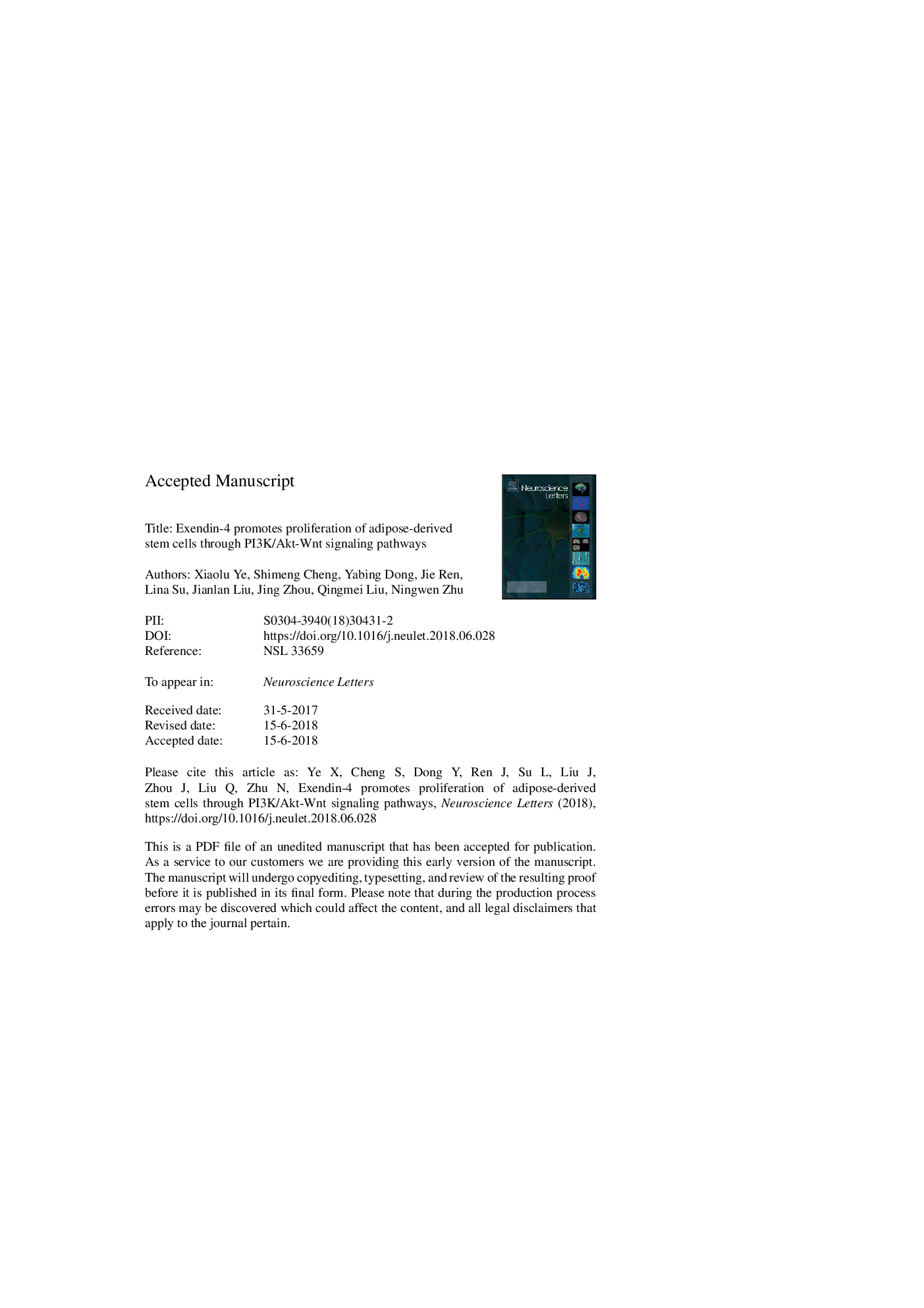| Article ID | Journal | Published Year | Pages | File Type |
|---|---|---|---|---|
| 11033405 | Neuroscience Letters | 2018 | 15 Pages |
Abstract
Adipose-derived stem cell (ADSC) transplantation has emerged as a potential tool for the treatment of cardiovascular disease and skin wounds. However, with a limited renewal capacity and the need for mass cells during the engraftment, strategies are needed to enhance ADSC proliferative capacity. In this study, we explored the effects of Exendin-4, a glucagon-like peptide-1 analog, on the growth of ADSCs, focusing in particular on phosphatidylinositol 3-kinase (PI3K)-protein kinase B (Akt) and Wnt signaling pathways. Firstly, ADSCs were isolated and cultured in vitro. Then, flow cytometry demonstrated that ADSCs were positive for CD44, CD90 and CD29 but negative for CD31, CD34, and CD45. Exendin-4 (0-200â¯nM) treatment increased ADSC proliferation. In order to examine specific signaling pathways, a western blotting assay was performed. Our results demonstrate that after treated with 50â¯nM Exendin-4 for 48â¯h, the phosphorylation of PI3K, Akt, and GSK3β were increased and phosphorylation of β-catenin was decreased. From these results, we concluded that PI3K-Akt and Wnt-β-catenin signaling pathways mediate Exendin-4 induced ADSC proliferation, the function of which might contribute to the regulation of ADSC proliferation. Our findings provided new insights into the function of the mechanisms underlying Exendin-4 of ADSCs.
Related Topics
Life Sciences
Neuroscience
Neuroscience (General)
Authors
Xiaolu Ye, Shimeng Cheng, Yabing Dong, Jie Ren, Lina Su, Jianlan Liu, Jing Zhou, Qingmei Liu, Ningwen Zhu,
